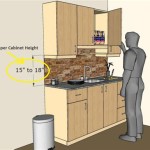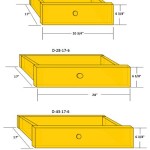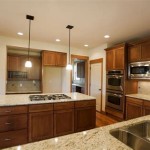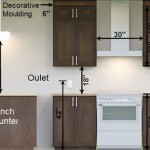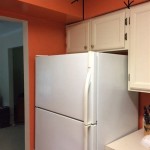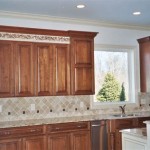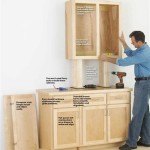Essential Aspects of Kitchen Cabinet Structure
Kitchen cabinets form the backbone of any kitchen, providing both storage and functionality. To ensure durability and longevity, it's crucial to understand the essential aspects of their structure.
Cabinet Box
The cabinet box is the main structural component, typically made from plywood, particleboard, or medium-density fiberboard (MDF). The thickness of the material determines the strength and rigidity of the box. Look for boxes with at least 3/4-inch thick sides and 1/2-inch thick shelves for optimal support.
Face Frame
The face frame is the visible frame around the door and drawer openings. It not only provides a decorative touch but also adds structural stability to the cabinet. Face frames can be made from various materials, including wood, MDF, or metal. Consider the overall kitchen design when selecting a face frame style to complement the cabinetry.
Door and Drawer Styles
Cabinet doors and drawers come in a wide range of styles, from traditional to modern. The choice depends on personal preference and kitchen aesthetics. Consider factors such as door construction (solid wood, veneer, or laminate), finish (painted, stained, or glazed), and hardware (handles or knobs). Ensure proper alignment and smooth operation during installation.
Hardware
Hardware encompasses everything from hinges and slides to handles and knobs. These components play a crucial role in the functionality and durability of cabinets. Opt for high-quality hardware with a durable finish that complements the cabinetry. Soft-close hinges and drawer slides provide a smooth and quiet operation, while adjustable hinges allow for fine-tuning during installation.
Organization and Accessories
Effective kitchen cabinet organization enhances functionality and maximizes storage space. Utilize accessories such as pull-out shelves, spice racks, drawer dividers, and under-sink organizers. These accessories help streamline storage, making it easy to access items and maintain order in the kitchen.
Additional Considerations
Beyond the main structural components and accessories, other factors also affect cabinet structure. These include:
- Joint Type: Dovetail joints offer superior strength and durability compared to butt joints.
- Assembly Method: Knock-down (KD) cabinets require assembly, while fully assembled (RTF) cabinets come pre-built for ease of installation.
- Height and Depth: Standard cabinet heights range from 12 to 42 inches, while depths vary from 12 to 24 inches. Choose sizes that accommodate storage needs and kitchen layout.
- Ventilation: Proper ventilation is crucial for preventing moisture buildup and mold growth. Consider installing ventilated shelves or upper cabinets with grilles to allow for airflow.
By considering these essential aspects of kitchen cabinet structure, you can ensure durability, functionality, and a flawless aesthetic in your kitchen for years to come.

How To Correctly Design And Build A Kitchen Archdaily

Cabinet Composition What Makes A High Quality

Kitchen Base Cabinets 101 Ana White

Cabinet Structure Update Cabinets Dream Kitchen Wood

Kitchen Cabinets The Engineer S Way Finewoodworking

The Middleton Series Cabinet Specifications

What Are In Frame Kitchens 5 Things You Should Know Fitzgerald

How To Correctly Design And Build A Kitchen Archdaily

Cabinets Specification Houlive Solid Wood Kitchen

Kitchen Cabinet Construction Drawings Cabinets Drawing Buy
Related Posts

